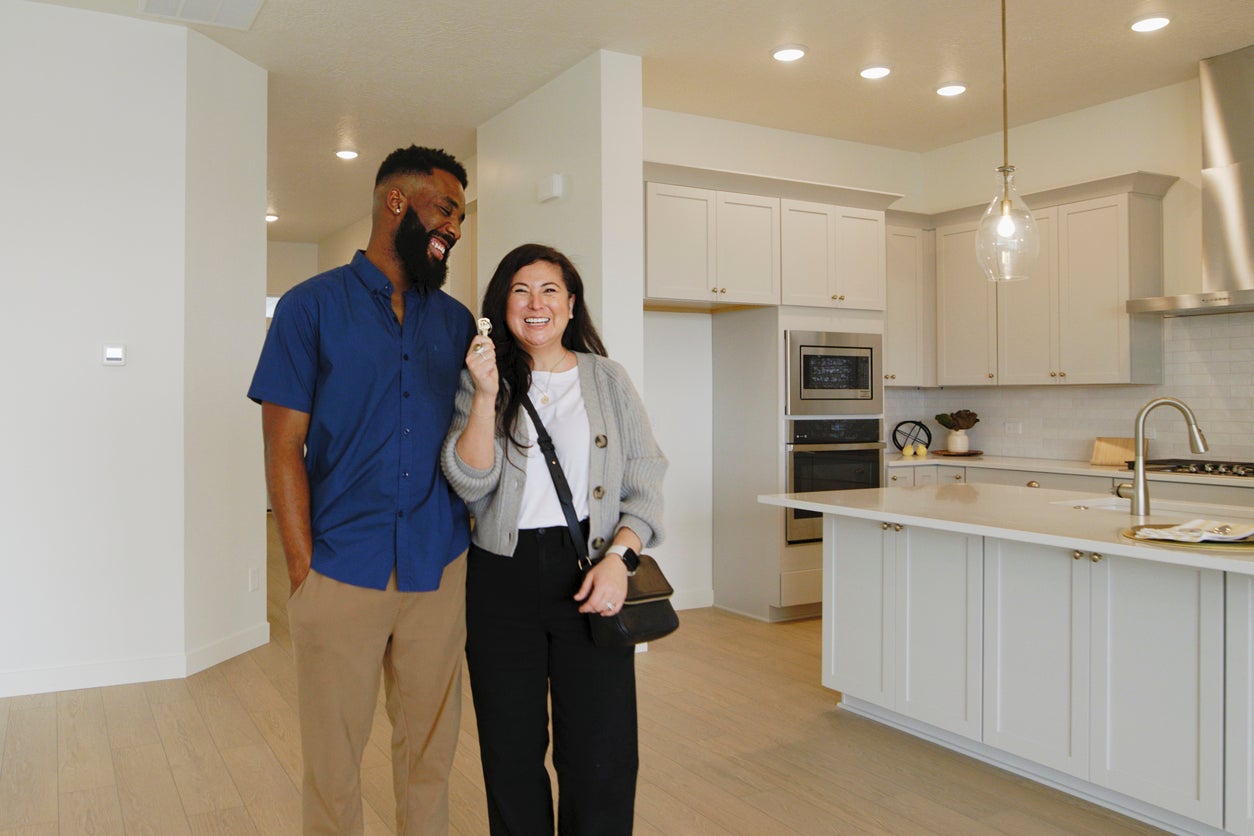There are advantages and disadvantages to being a renter, as you likely know well by now. But when the cons begin to outweigh the pros, you may be considering your next chapter. Are you ready to buy a house? What does that process and timeline look like? What does it really cost?
These are all considerations that are important to understand, and fortunately, you’ll have a lot of help getting the answers!
Here are a few signs that you may be ready to take on the financial responsibility of homeownership and action steps that will help you get closer to this goal.
3 Questions to Answer Before Buying a Home
1. Do you expect to live in your area for some time?
There’s a certain level of freedom that comes with renting. When your lease expires, you can decide to move into a new apartment or across the country! Even if there is something that requires you to move sooner than expected, the cost of breaking your lease is relatively minimal. When you’re a homeowner, it’s not quite so easy to change course.
You may be ready to buy a home if you have the next few years of your life plotted out with no anticipated major changes. You have a stable job, and you’re planning to stay in your current city for the foreseeable future. Generally, if you are planning on staying in the same place for the next 5-10 years, you have enough commitment to the area to purchase your first home there.
2. What does your financial track record look like?
Lenders will look at your pay stubs, account balances, recent tax returns, and credit score to better understand your financial situation. Typically, having proof of a steady income and relatively low debt are helpful factors to earn a mortgage loan approval. Lenders are likely to favor applicants who have been at the same job for two or more years and have a debt-to-income ratio of or below 43%.
Depending on the lender and loan type you’re interested in, the eligible credit score can vary widely. While having perfect credit isn’t a requirement to get a mortgage, a higher credit score often means qualifying for a better interest rate and the opportunity to make a lower monthly mortgage payment. If you know you want to apply for a mortgage in the next six months to a year, begin paying closer attention to improving your credit score as much as possible.
3. How strong is your savings?
It’s important to expect the unexpected when it comes to homeownership. Unfortunately, repairs and seasonal expenses are simply part of the package, and they can be small fixes or quite expensive ones. You never know when an appliance will stop working or your heating system can’t keep up with a harsh winter. Ample savings and an emergency fund can help limit stress in the event of an unanticipated financial need.
Also, the down payment can be the biggest upfront cost when purchasing a home. Most home sales require a down payment between 3% and 20% of the cost of the home, depending on the type of loan. However, the bigger your down payment is, the more appeal you may have to a mortgage lender and the better mortgage rate you might qualify for. In addition, you might have more negotiating power with the seller. Having healthy savings that include this down payment, as well as all the emergencies that may come after purchasing your home, is a positive sign that you’re ready for this next step.
3 Moves to Make Before Making an Offer
If you answered the above questions positively, you probably feel ready to go straight to your local Zillow listings. But not so fast! Here are a few more things to prepare you for shopping for your first home.
Evaluate Your Timeline
One of the first questions a lender or realtor will ask you is: what’s your timeline? Are you looking to move promptly? Are you in less of a rush, browsing until you find the right fit? Are there circumstances that are likely to affect your buying process? These are all things that are helpful to consider as you think about what your priorities are and how many compromises you’re willing to make when looking for the right first home for you.
Keep in mind, too, that the real estate market is constantly evolving. If you’re unhappy with your current outlook, being patient can often work out in your favor!
Meet With a Lender
Understanding your budget is one of the most important factors when searching for a home. A loan officer can help you navigate your choices, answer questions about how much the process will cost (i.e., earnest money, appraisals, home inspections, and closing costs), and estimate how a mortgage will impact your monthly budget. Once they have evaluated your financials, they’ll quote how much you can afford to offer on a house and provide you with a pre-approval letter you can take with you during your house hunt.
Keep in mind, this pre-approval is not a guarantee from your loan officer. Once you make a successful bid on a property, your lender will do a final confirmation on the financial information you provided during the underwriting process. However, as any loan officer will caution you, it’s important not to make substantial changes to your income or debt status during this time. Changing jobs or taking out another loan can have repercussions on your ability to take out a mortgage, so consult with your lender accordingly.
Choose a Real Estate Agent
Once you know what you can afford and when you’d like to buy a home, your next best step in the homebuying process is finding a real estate agent. Depending on where you’re looking to buy, there are often many agents to choose from, so take your time and feel free to have more than one introductory conversation before you decide who to work with.
This agent will help you filter your options based on your specific wants and needs, and can open up options you might not be able to find on your own based on their professional network. They can make recommendations on bids you wish to make based on local market research and will facilitate conversations between you and the home’s sellers. Regardless of the market conditions, the state of the property you want, or the seller’s state of mind, having an agent on your side can advise you on the best course from search to sale.
Final Considerations
Don’t be hard on yourself if your financial situation isn’t quite right yet. Now that you know a little bit more about the process, you can make plans to improve your credit and savings and begin forming relationships with your bank and local real estate professionals ahead of time.
Homebuying can be a nervewracking undertaking for anyone, whether it’s your first home or your fifth. Fortunately, you can easily find resources and advisors who can help make it all a bit easier. Don’t hesitate to begin researching your options and taking steps to transition from renter to homeowner. We’re cheering you on, no matter where you are in the process!
Information contained in this blog is for educational and informational purposes only. Nothing contained in this blog should be construed as legal or tax advice. An attorney or tax advisor should be consulted for advice on specific issues.




